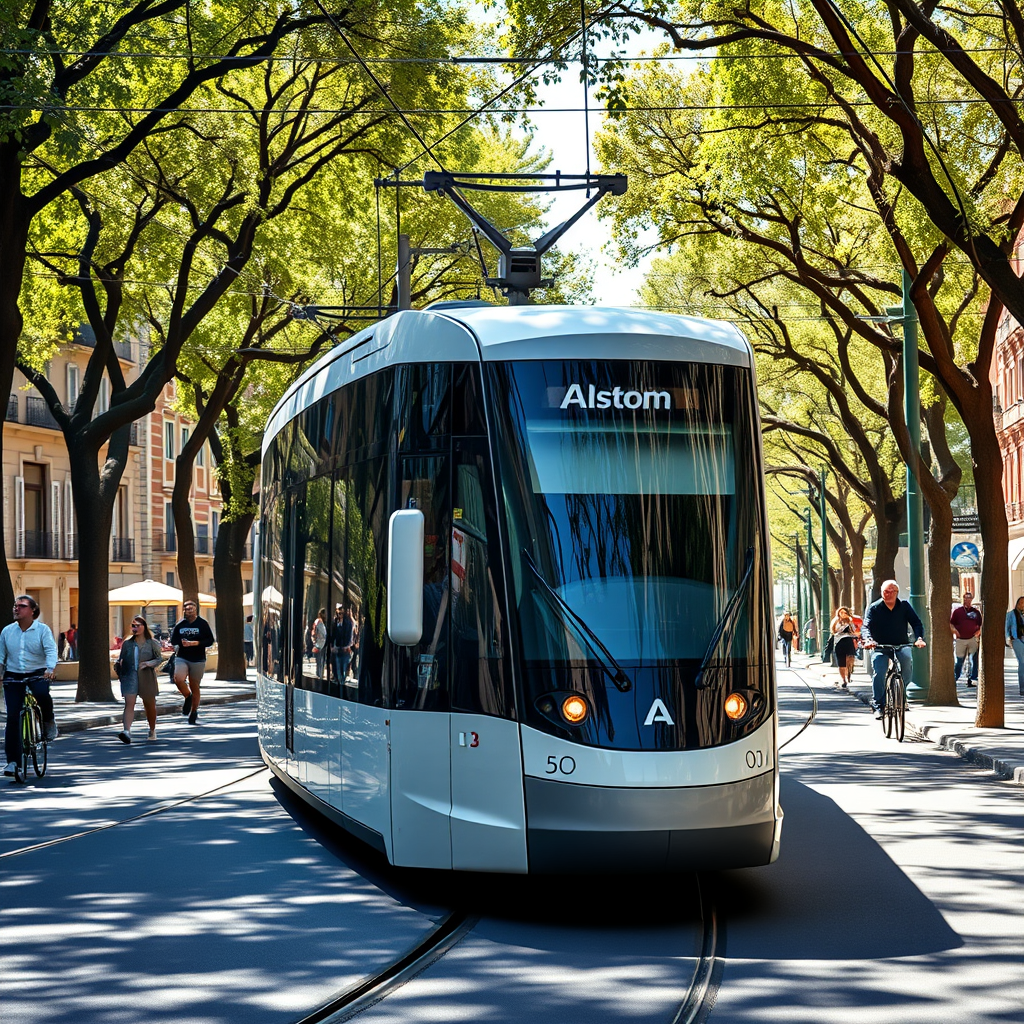Renfe, Brescia: Rail Sustainability & Infrastructure Drive
Renfe Mercancías awards sustainability certificates, showcasing rail freight’s environmental benefits. Brescia Mobilita secures tram line contract, boosting Italian rail infrastructure.

Renfe Mercancías and Brescia Mobilita: Rail Projects Driving Sustainability and Infrastructure Development
In a significant month for the railway industry, two key developments highlight the sector’s commitment to sustainability and infrastructure expansion. At the International Logistics Exhibition (SIL) in Barcelona, Spain, Renfe Mercancías, the freight arm of Spain’s Renfe Group, awarded Carbon Footprint Certificates to key logistics clients, showcasing the environmental benefits of rail freight. Simultaneously, in Italy, a consortium led by Manelli Impresa, in partnership with Alstom and Hitachi Rail, secured a contract from Brescia Mobilita for the construction of a new tram line. These events, occurring earlier this month, underscore the global momentum behind sustainable transportation solutions and strategic infrastructure investments. This article explores these developments and their implications for the future of railway operations and environmental responsibility.
Renfe Mercancías’ Commitment to Sustainable Freight Transport
Renfe Mercancías has demonstrated its commitment to reducing its carbon footprint by awarding Carbon Footprint Certificates to its major clients. This initiative, presented at SIL, acknowledges and quantifies the greenhouse gas emissions avoided by opting for rail freight over road transport. The certificates are a tangible demonstration of Renfe Mercancías’ role in facilitating a shift towards more sustainable logistics practices. By choosing rail, these companies contribute to a substantial reduction in carbon dioxide (CO2) emissions, crucial in an era focused on combating climate change.
Carbon Footprint Reduction Achieved
A total of twelve companies, operating across diverse sectors including steel manufacturing, automotive, paper production, agri-food, port logistics, and intermodal transport, were awarded certificates. Collectively, these companies eliminated over 240,000 tonnes of CO2 emissions in 2024 by utilizing Renfe Mercancías for their freight needs. This significant reduction showcases the environmental advantage of rail transport and its capacity to mitigate the environmental impact of supply chains. Such a quantifiable demonstration provides a powerful incentive for other companies to embrace rail freight as a sustainable alternative to road transport.
Brescia Mobilita’s Tram Line Expansion
In Italy, Brescia Mobilita has awarded a major contract to a consortium comprising Manelli Impresa, Alstom, and Hitachi Rail for the construction of the new T2 tram line in Brescia. The project, valued at approximately $374 million, represents a crucial investment in the city’s public transport infrastructure. This initiative aligns with the growing global trend of prioritizing efficient and eco-friendly public transport systems in urban environments, aimed at improving air quality and reducing traffic congestion. The collaboration between these industry leaders will bring advanced railway technology and expertise to the project, ensuring its successful and timely completion.
Technical Details of the T2 Line
The new T2 tram line will link the Pendolina and Fiera stations, traversing a 7-mile double-track route that spans the city’s southwest and northwest areas. The project includes 21 stops, providing convenient access to various parts of Brescia. Additionally, a main depot at Fiera and an auxiliary depot at Pendolina will be constructed to support operations and maintenance. This investment highlights the crucial role of modern railway infrastructure in enhancing urban connectivity and promoting sustainable transportation solutions.
Conclusion
The recent initiatives by Renfe Mercancías and Brescia Mobilita underscore the pivotal role railways play in driving both sustainability and infrastructure development. Renfe Mercancías’ Carbon Footprint Certificates provide a measurable framework for promoting environmentally conscious logistics practices, highlighting the direct impact of choosing rail freight over road transport. The significant reduction in CO2 emissions achieved by its clients demonstrates the tangible benefits of such measures, encouraging further adoption of rail-based freight solutions. Simultaneously, the Brescia Mobilita project represents a strategic investment in urban public transport infrastructure. The T2 tram line’s construction signifies a commitment to enhancing urban mobility and improving air quality. These developments collectively point to a future where rail is increasingly central to transportation networks, both in freight and passenger capacities.
The industry implications of these events are considerable. The success of the Renfe Mercancías initiative could inspire similar programs across the railway sector, encouraging more companies to adopt sustainable transport solutions. The Brescia Mobilita project sets a precedent for urban infrastructure development, showcasing the benefits of investing in efficient and environmentally friendly public transport. Future outlooks for the rail industry are bright, with continued innovation in sustainable technologies, strategic infrastructure projects, and a growing global awareness of the environmental advantages of rail transport. Investments like these will be crucial to meeting sustainability targets and enhancing global connectivity.



